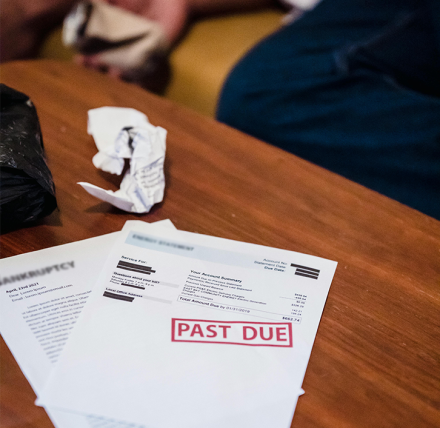


Just give me my money: Financial year end brings debt recovery into sharp focus
INSIGHTS
Money is a sensitive subject in Scotland. It becomes even more difficult to navigate when you are the one that is owed. While we hope that in these situations the debtor makes repayments towards the sum owed to you or your organisation, we appreciate that this does not always happen.
With the end of the financial year in sight for many businesses and organisations, as well as private individuals, the need to balance the books is vital, and debt recovery is one way to achieve that position.
Research by NatWest found that a quarter of British small and medium-sized businesses have admitted to being owed between £5,000.00 and £20,000.00 in unpaid invoices. That is more than 2m UK businesses which are not being paid timeously. Furthermore, 31% of businesses suggest that they spend anywhere between 21-30 hours per month chasing customers.
We have outlined below three steps that can potentially help you recover the sums you are owed, aptly named PAE:
Pre-action
Issuing a Letter Before Action (LBA) seeking the recovery of the sums owed to you within seven days is our recommended first step before raising any court action. Having our team acting on your behalf can be a reality check for debtors. We find that sending this letter can, in some cases, induce payment. This is extremely cost effective as there is no drawn-out court proceedings or enforcement.
Action
Unfortunately, LBAs are not always successful, and the potential second step is to raise a court action seeking to recover the sums owed (you can even seek expenses and interest).
If you are owed a sum less than £5000.00, this would be a Simple Procedure court process. Anything over that threshold is Ordinary Cause procedure. The rules around going to court are incredibly complex. Our team is on hand to guide you through the process.
We help our clients by carrying out due diligence prior to raising any action to maximise the prospects of success. Upon a successful court action, the court will award a decree in your favour. Decree is effectively another word for judgment.
Enforcement
To some debtors, a decree amounts to nothing more than a piece of paper. Which is why we cannot understate the importance of the enforcement process. In Scotland, this enforcement process is called Diligence. It is the steps that we help our clients take to get the money owed to them following a successful court action.
Diligence in Scotland takes many forms but the most common are:
• Inhibition – prevents the debtor from selling their heritable property.
• Charge for Payment – a prerequisite to other diligences, it is a formal demand that gives the debtor 14 days to pay the amount secured by decree.
• Attachment – we have all seen “Can’t Pay, We’ll Take it Away” where Sheriff Officers ‘attach’ moveable assets from the debtor to be sold at auction, subject to numerous restrictions.
• Bank Arrestment – effectively freezes the sums in the debtor’s bank account. The ‘arrested’ sums are then held for a period and released to you.
• Earnings Arrestment – allows you to take sums directly from the debtor’s earnings via their employer.
• Sequestration/liquidation – often referred to as the ‘ultimate diligence’ as it results in bankruptcy or the winding up of a company.
Should you require some assistance related to debts you are owed, do not hesitate to contact our Debt & Asset Recovery team. Harper Macleod’s specialist Debt Recovery team can help collect what your organisation is due. We are independently ranked among the best in the country and, while recovery of a debt is not guaranteed, we help our clients maximise their prospects of recovery.
We are expert advisors on all aspects of debt recovery, we can (and have) advised various types of clients such as:
• Businesses
• Individuals
• Landlords
• Housing Associations
• Public sector
About the author
Trainee Solicitor
RELATED
CONTACT US
Call us for free on 0330 912 0294 or complete our online form below for legal advice or to arrange a call back.